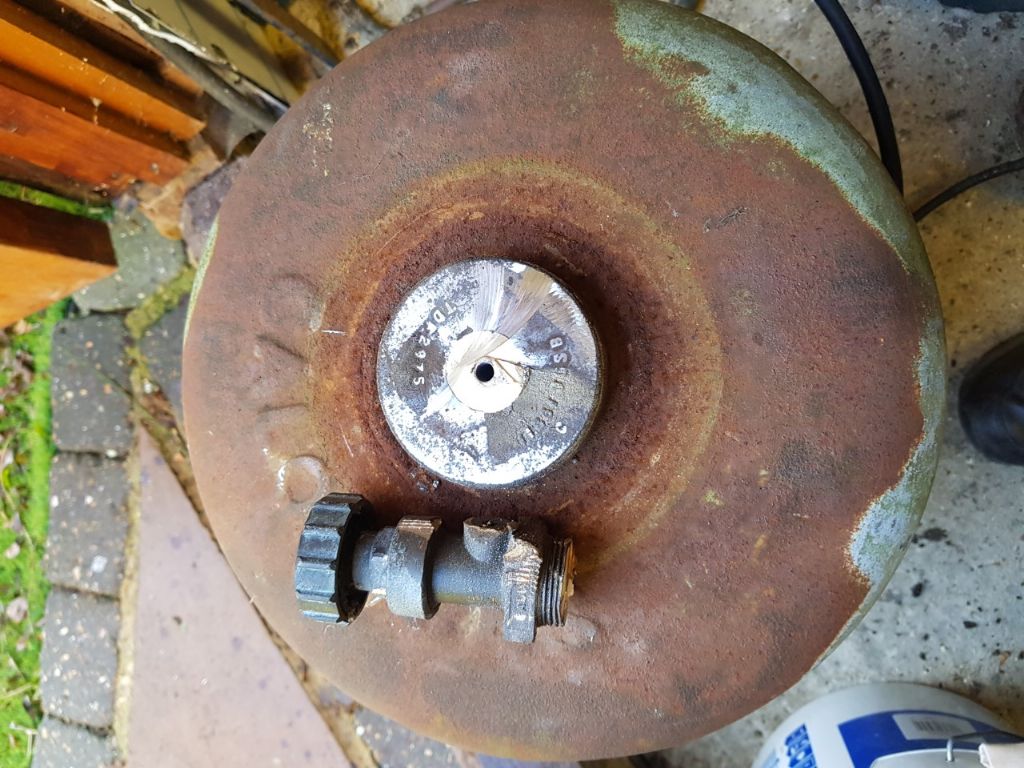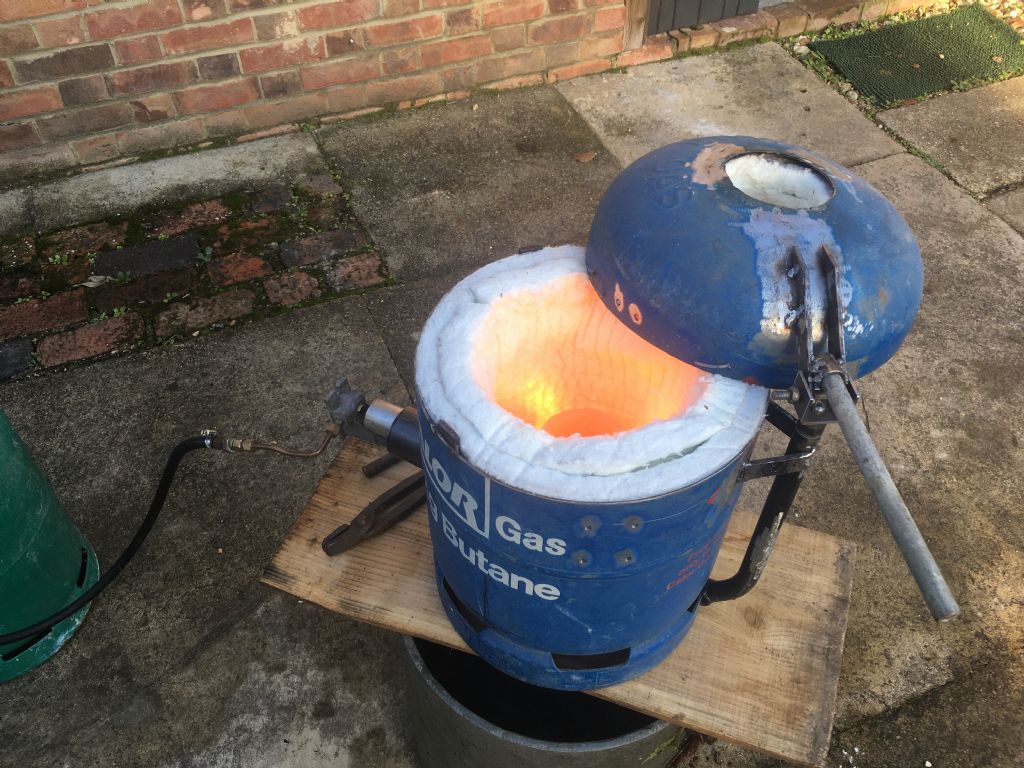Oil is the best fuel available and engine oil is no exception. Plenty of heat in it but it's not easy to burn efficiently. To maximise heat and minimise nasty side effects it's necessary to use a burner as described by Les. The burner controls the mix of fuel and air for optimum results. Otherwise, engine oil is difficult to ignite and liable to incomplete combustion producing clouds of thick smoke, likely toxic, and not much heat.
Lead is easily melted (368°C), but Copper, Aluminium and Brass need about three times the temperature. Copper 1084°C, Aluminium 450 to 700°C depending on the Alloy, and Brass 900°C to 1100°C again depending on the alloy. All within reach. Cast-iron and steel require even more heat, and an improved design.
Outdoor job, well ventilated, not for pregnant ladies. Get lead much too hot and off come poisonous fumes. Molten brass loses Zinc, altering the properties of the metal and a serious health hazard if done on a large scale or in a confined space. Brass founders usually add Zinc back to replace that lost during the melt, but for amateur purposes the exact composition may not matter. Aluminium is safe enough, but if melting scrap don't mistake Magnesium for Aluminium. Magnesium is much more likely to catch fire than most metals and it explodes if water is used to put it out!
A potential problem with home melted scrap is the unpredictable output. Alloys vary considerably depending on exactly what's in them. Cartridge Brass is different from Plumbing Brass which is different from Hard Brass. For making rough castings and ornaments it probably won't matter, but expect trouble if anything high-tech is attempted, like machining.
Can you report back when you get it working? It's an interesting subject.
Dave
Pero.






